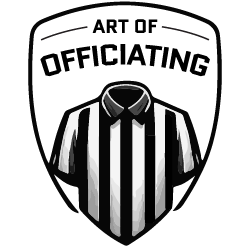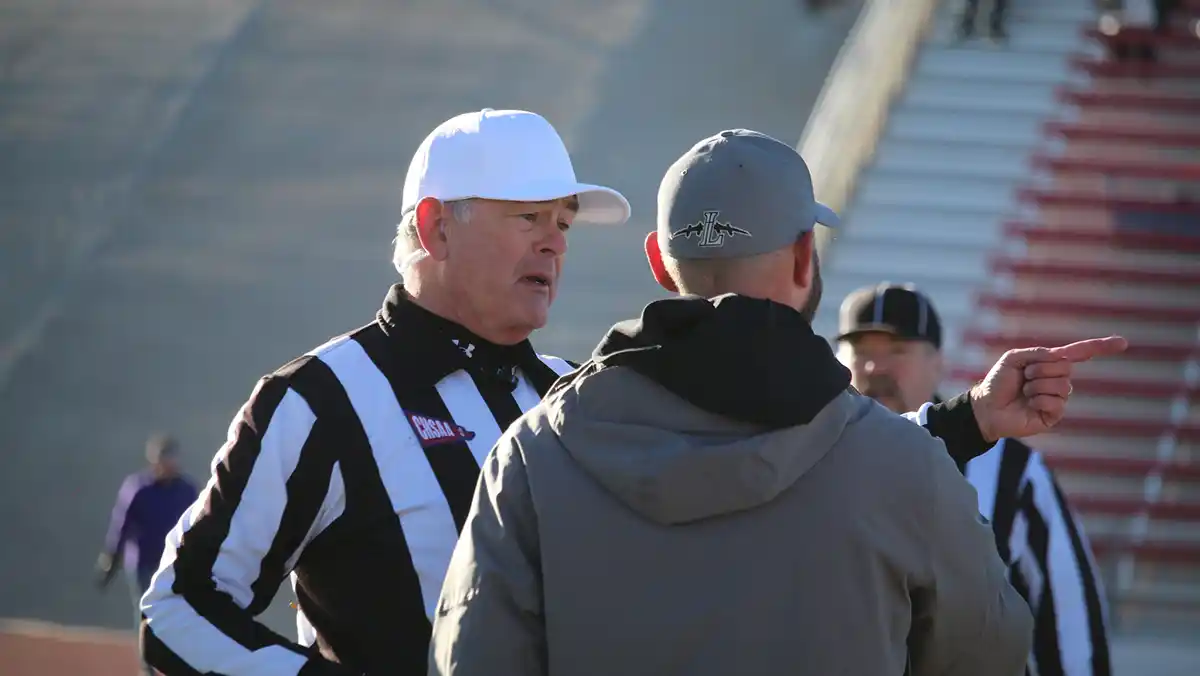Dealing with coaches is one of the most essential officiating abilities. I had the privilege of observing one of my mentors, Mark VanGampleare, expertly communicate with coaches. I’ve also dialogued with Randy Campbell, the Rocky Mountain Athletic Conference Football Officials supervisor (who provided some of the below content).
I believe officials should be like Chick-fil-A employees
Always be courteous and attentive. The customer is not “always right,” but the customer should always be treated with respect.
Here are a few precepts that may help with agitated coaches:
- Do not insist on having the last word. Do not insist on making yourself understood (trying to prove you are right). If a coach walks away, that’s good. Unless you have instructions for a coach, do not initiate a conversation.
- You can never misquote silence.
- If a coach is upset, start your conversation with “coach, what’s your concern?”
- Always use the term “by rule” in your conversation if the coach is upset about a judgement. (For example, “coach, by rule it is not a horse-collar tackle if the runner is tackled forward.)
- The person who asks the questions controls the conversation. Ask a series of specific questions to determine the coach’s concern.
- As you ask questions, you are showing the coach you are paying attention to his concerns. Often, the coach will lose interest with the rant and will want to move on. Most of the time they will be satisfied that you are listening and acknowledging.
- Never say “that’s not my call” or “that’s not my look.” (Don’t throw your teammates under the bus.) Instead, say “my partner had a good look at that play.”
- Do not let assistant coaches gripe at you. Give a lot of grace to the head coach and let him have his piece of flesh. If you are fed up with an assistant, you can go to the head coach and say “coach, I need your help with your assistants. I’m happy to speak with you but I can’t have someone complaining on every play.”
- If you screw something up, own it. It’s okay to tell a coach, “If that’s what happened, I missed it.” Just don’t say it multiple times a game. If you blow a call, give the coach latitude to vent his frustration. Just don’t allow him to loudly berate you or curse you. If he makes it “public,” then warn him. Do everything in your power to talk him off the ledge, and only use your flag if he crosses the line. There are some things that a coach can do or say that will immediately warrant a flag. Anything that is clearly disrespectful to you and is overly demonstrative (something the fans can see/hear), probably deserves a flag.

